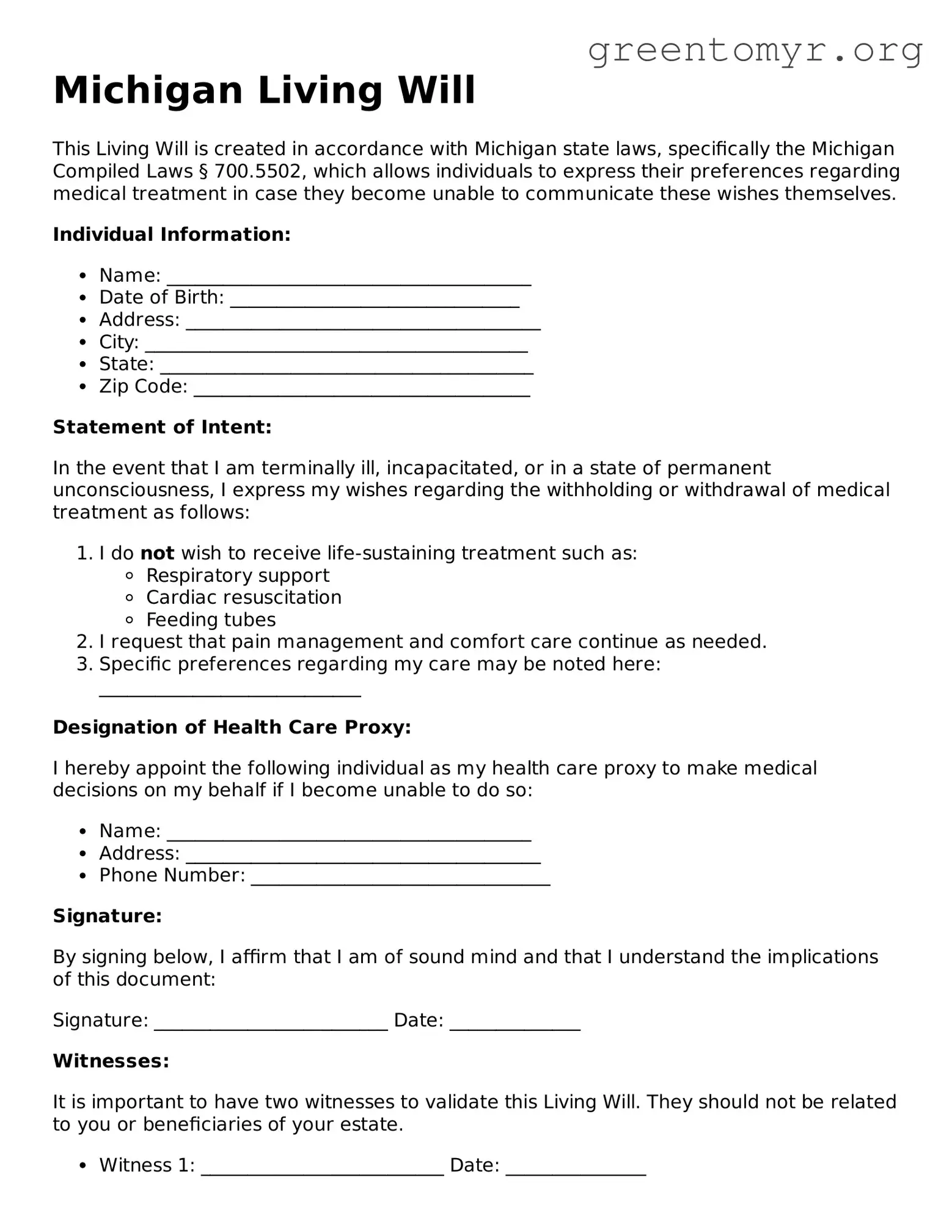Michigan Living Will
This Living Will is created in accordance with Michigan state laws, specifically the Michigan Compiled Laws § 700.5502, which allows individuals to express their preferences regarding medical treatment in case they become unable to communicate these wishes themselves.
Individual Information:
- Name: _______________________________________
- Date of Birth: _______________________________
- Address: ______________________________________
- City: _________________________________________
- State: ________________________________________
- Zip Code: ____________________________________
Statement of Intent:
In the event that I am terminally ill, incapacitated, or in a state of permanent unconsciousness, I express my wishes regarding the withholding or withdrawal of medical treatment as follows:
- I do not wish to receive life-sustaining treatment such as:
- Respiratory support
- Cardiac resuscitation
- Feeding tubes
- I request that pain management and comfort care continue as needed.
- Specific preferences regarding my care may be noted here: ____________________________
Designation of Health Care Proxy:
I hereby appoint the following individual as my health care proxy to make medical decisions on my behalf if I become unable to do so:
- Name: _______________________________________
- Address: ______________________________________
- Phone Number: ________________________________
Signature:
By signing below, I affirm that I am of sound mind and that I understand the implications of this document:
Signature: _________________________ Date: ______________
Witnesses:
It is important to have two witnesses to validate this Living Will. They should not be related to you or beneficiaries of your estate.
- Witness 1: __________________________ Date: _______________
- Witness 2: __________________________ Date: _______________
This Living Will is intended to grant peace of mind and clarity on your wishes. Open discussions with your loved ones regarding these preferences can ensure your intentions are respected.
